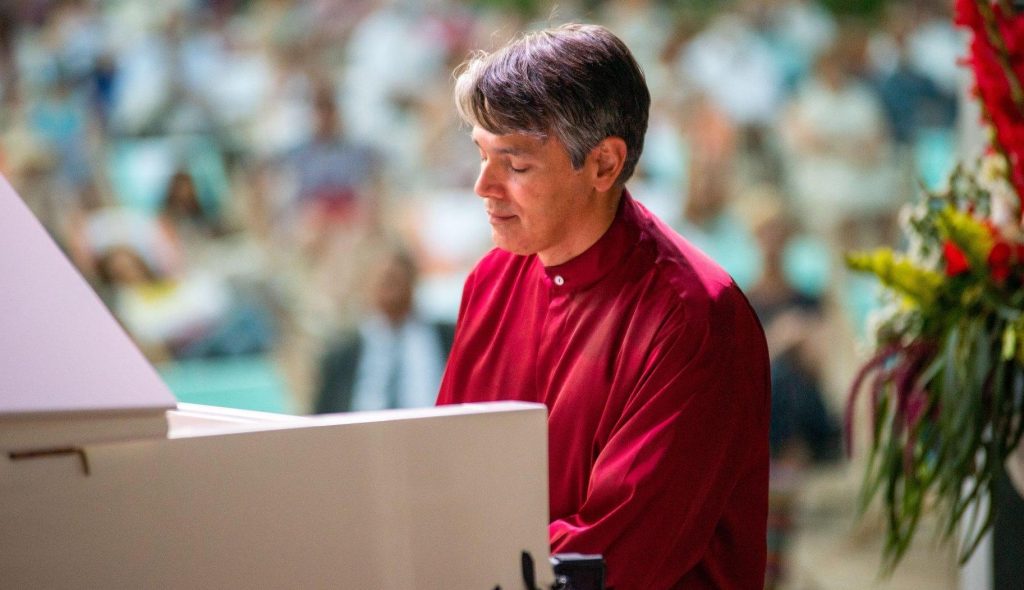PIETRO DE MARIA
A bright star in the pianistic world
November 2020

Born in 1967 in Venice, the Italian pianist, demonstrated a bright gift winning the First Prize at the Alfred Cortot International Piano Competition in Milan at the age of 13. When asked for his earliest memories he recalls “I remember one evening at the house of my parents’ friends, I must have been 4 years old. There was an upright piano and I rushed to strum it, of course I didn’t know how to do it, having never received a musical education. After a few minutes they came to lock the instrument making me cry bitter tears … Perhaps on that occasion my parents were convinced that my desire to have a piano at home was not a whim.”
He studied with Giorgio Vianello and Gino Gorini in his native Venice. After his graduation in Venice’s Conservatory, he continued his studies with Maria Tipo at the Conservatory of Geneva, where he obtained the Premier Prix with the highest honors in 1988.
After winning the Critics’ Prize at the Tchaikovsky Competition in Moscow in 1990, Pietro De Maria received the First Prize at the Dino Ciani International Competition – Teatro alla Scala in Milan (1990) and at the Géza Anda in Zurich (1994). In 1997 he was awarded the Mendelssohn Prize in Hamburg.
Critics describe Pietro de Maria as “an artist of great sensitivity and delightful interpretive refinement.” “I always say that you have to caress the piano. Fluency is important and not hitting him” explains the 54-year-old interpreter.
De Maria frequently performs in concerts, as a soloist with prestigious international orchestras and with eminent conductors, such as Roberto Abbado, Gary Bertini, Myung-Whun Chung, Vladimir Fedoseyev, Daniele Gatti and Gianandrea Noseda.
Pietro De Maria is the first Italian pianist to have played Frédéric Chopin’s complete piano works in public concerts. These works have been recorded by Decca and have received important acknowledgments from international publications of prestige such as Diapason, International Piano and Pianist.
“I’ve always loved it, since I was eight I wanted to play Chopin’s works. He has accompanied me in my development, so some years ago it was a natural consequence to play all of his works in concert and also record them.” Said de Maria during an interview.
Surprisingly, when asked to choose three music pieces to be preserved for the eternity in case of nuclear cataclysm, his choice was: Bach’s Well-Tempered Harpsichord, Beethoven’s Ninth Symphony and Brahms’ Fourth Symphony.
Pietro De Maria is an Academician of Santa Cecilia and teaches at the Mozarteum in Salzburg. He is in the teaching team of the La Scuola di Maria Tipo project organized by the Pinerolo Academy of Music. Being a renowned teacher, he defends the importance of music. “Music makes you smarter because it sets in motion areas of the brain that we don’t normally use (by that I don’t mean that musicians are necessarily superior people) and teaches us to listen, therefore, to be more open and tolerant. It is a great antidote to aging, keeps us young and teaches us to relate to our emotions and to have a psychomotor control of our body.”
